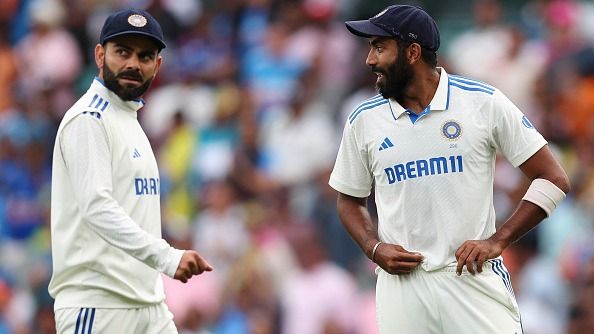 |
|
The recent Border-Gavaskar Trophy series loss has sparked intense debate surrounding the future of Indian Test cricket, particularly regarding the captaincy and the roles of key players like Rohit Sharma and Virat Kohli. Adam Gilchrist, the Australian cricketing legend, has voiced his concerns about the sustainability of Jasprit Bumrah's potential captaincy, citing workload management as a major obstacle. Bumrah, while a highly capable and successful bowler, has demonstrated a remarkable record of taking 32 wickets in a five-Test series, but his injury concerns highlight the physical demands of captaincy in addition to the pressures of consistent high-performance bowling. Gilchrist's skepticism regarding Bumrah's long-term suitability as Test captain stems from a recognition of the intense pressure and physical exertion involved in leading a team through a grueling series, especially in the demanding format of Test cricket. His successful captaincy stints in specific matches, such as the victory in Perth, cannot entirely compensate for the long-term demands of this role. The physical toll on a fast bowler of Bumrah's caliber is significant, and the risk of injury and subsequent decline in performance is a serious consideration that needs to be thoroughly weighed by the BCCI selection committee. The team's performance suffered visibly in the absence of Bumrah's pace bowling, leaving the team vulnerable even against relatively modest targets.
Gilchrist's prediction that Virat Kohli might return to the Test captaincy role is intriguing. Kohli's past successes as captain, despite his recent struggles in form, highlight his understanding of the game's intricacies and his ability to inspire his teammates. His experience and leadership are invaluable assets, especially given the current uncertainty surrounding the team's direction. While his batting form has dipped somewhat recently, his tactical acumen and leadership skills remain potent. The prospect of Kohli's return to captaincy resonates with many, as he is perceived as a leader who can command respect and provide the much-needed stability within the team. The timing is especially pivotal, given the upcoming five-match Test series against England, the first in the new World Test Championship cycle, which demands a stable and experienced leadership presence. The pressure to perform, to turn around the team's fortunes, and to prove that the defeat in the Border-Gavaskar Trophy was an aberration, rests significantly on the leadership of the captain.
The future of Rohit Sharma's Test career remains equally uncertain. Gilchrist's assessment that Sharma might retire after the Champions Trophy is a significant observation. Sharma's own comments about needing to reassess his position hint at potential fatigue or a reevaluation of his priorities, possibly related to personal matters as alluded to by Gilchrist. The combination of ageing, declining form, and the physical demands of international cricket may have prompted Sharma to seriously consider stepping away from the longer format of the game. His decision to skip the fifth Test, citing form as the reason, does little to quell concerns about his long-term prospects in Test matches. While he denied immediate retirement, the underlying implication was that his future in Test cricket is not secure. The pressure to perform at the highest level continuously, particularly in Test matches, takes a heavy toll on players, and this appears to have begun to significantly impact Sharma’s commitment to the format.
The BCCI faces a crucial decision in selecting the appropriate captain and squad for the upcoming England series. The concerns raised by Gilchrist, while speculative, highlight the complex interplay of factors—performance, workload management, player morale, and future planning—that influence team selection. The selection panel needs to consider not only immediate results but also the long-term sustainability of the team. It's a decision that must balance the potential of younger talent with the experience of established players. The coming months will undoubtedly be pivotal in shaping the future of Indian Test cricket, deciding whether they can bounce back from recent setbacks, establish a new leadership structure, and revitalize their performance in this challenging format.
Beyond the captaincy debate, the broader context of India's recent performances needs careful examination. The loss in the Border-Gavaskar Trophy exposed weaknesses that need addressing. It's not solely a matter of captaincy; it involves refining team strategy, improving player fitness, and fostering a culture of consistent high performance. A holistic approach to problem-solving, rather than focusing on isolated solutions, is needed to ensure the long-term health and success of the Indian Test team. The team's performance in the World Test Championship, culminating in their absence from the final, further underlines the necessity for profound and sustained change. The impending England series is not just another series but an opportunity for a fresh start, a chance for the team to showcase a renewed commitment to excellence and redefine their identity on the global cricket stage. The decisions made by the BCCI will be critically scrutinized, not only by cricket pundits and fans, but also by the players themselves whose performances will be directly affected by these decisions.
